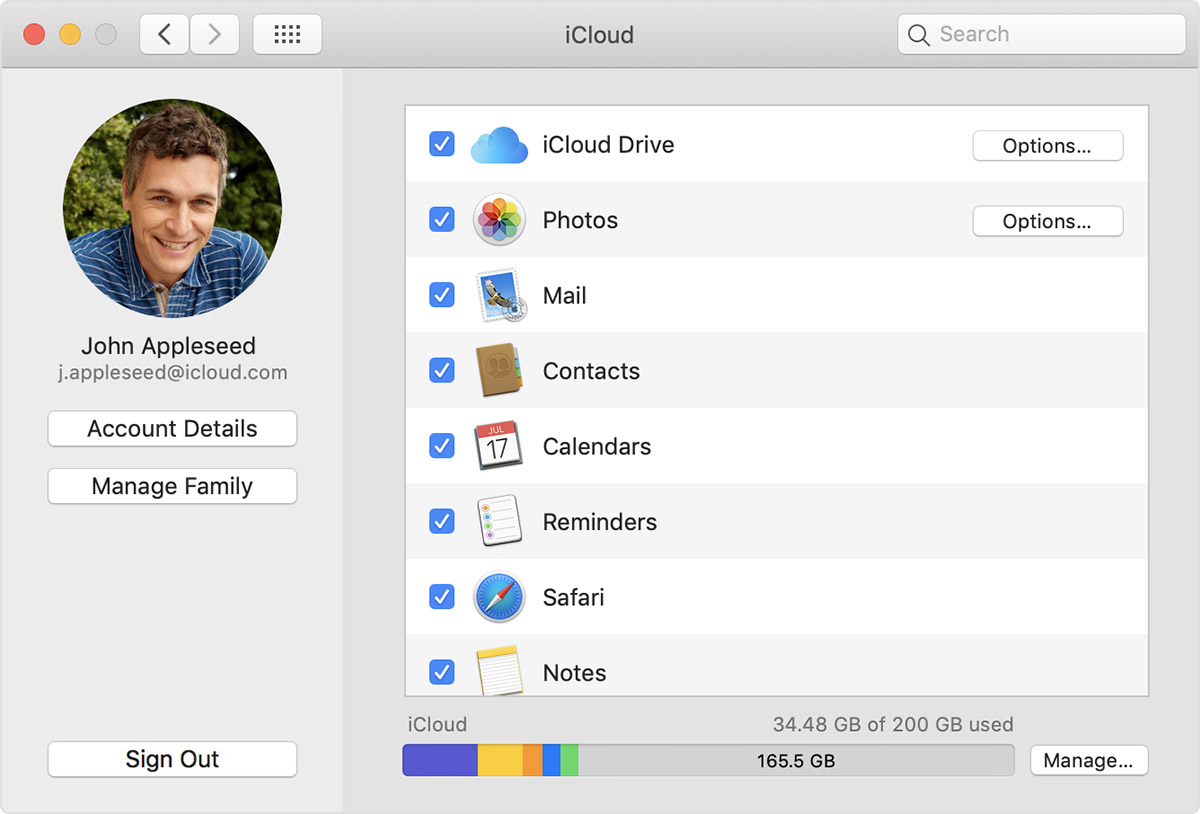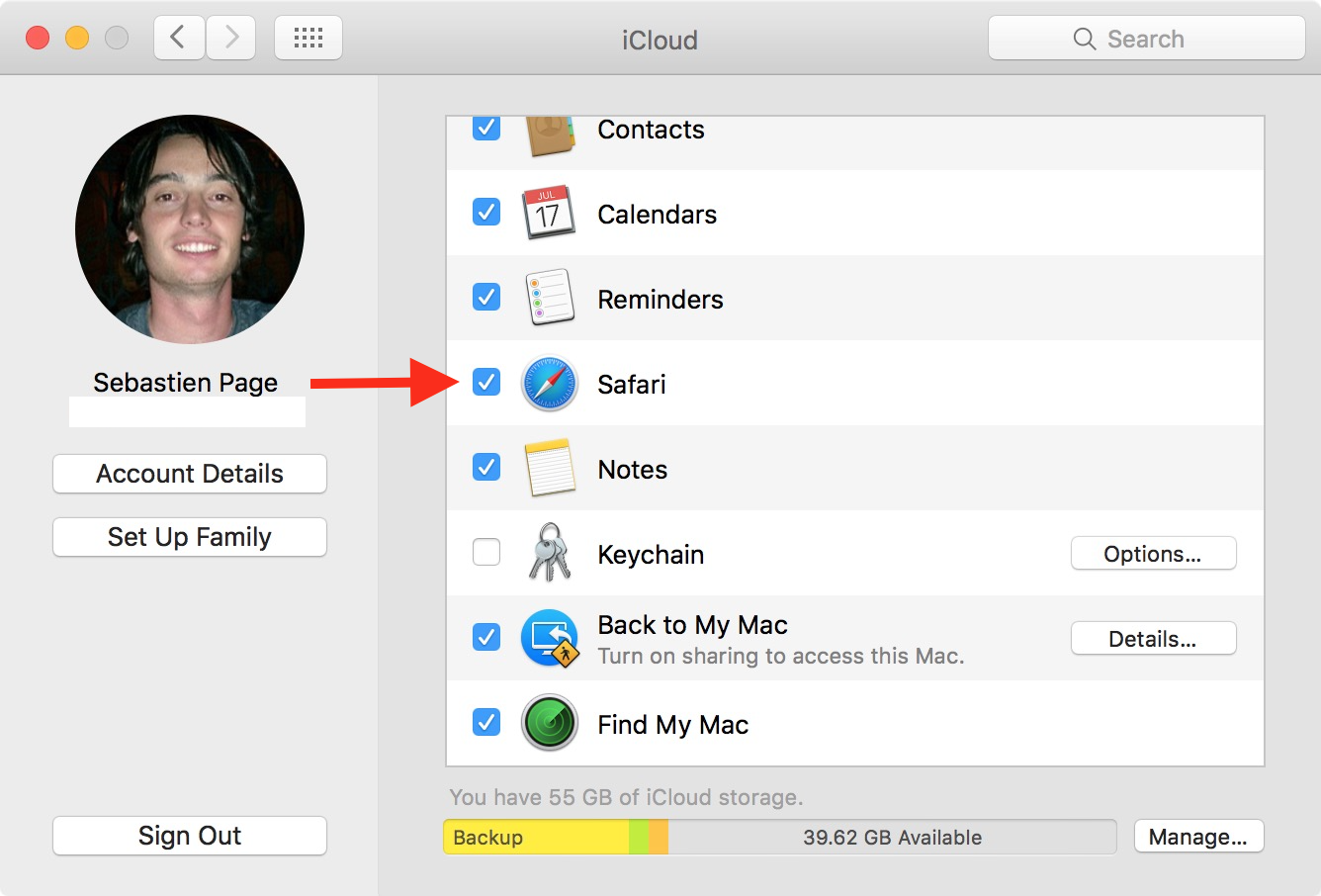1 How to Set up iCloud on Mac. To set up iCloud on a Mac, you need to be running Mac OS X 10.7.2 or later. So, if your Mac is not up to date, download and install the latest version before you continue. Change Apple ID To iCloud Email Address on iPhone or iPad. Follow the steps below to change Apple ID to iCloud Email Address on your iPhone or iPad. Open Settings On the Settings screen, tap on your Name. On the next screen, tap on Name, Phone Numbers, Email. When prompted, enter your Apple ID Password and click on OK. Sync your iCloud calendar with Outlook for Mac Open a browser window and sign in to your iCloud account. In iCloud, click Calendar. Click the Share Calendar icon next to the calendar you want to configure in Outlook. Click Copy Link. In another browser window, sign in to Outlook on the web.
Backing up your Mac is simple and important. We recommend it for everyone.
Back up with Time Machine
Time Machine is the built-in backup feature of your Mac. It’s a complete backup solution, but you can use other backup methods as well.
Create a backupStore files in iCloud
You can also use iCloud and iCloud Drive to store files, such as your photos, documents, and music.
Set up iCloud and iCloud DriveRestore your Mac from a backup
When you have a backup, you can use it to restore your files at any time, including after the original files are deleted from your Mac.
Restore from a backupPrepare your Mac for service
Making a backup is an important part of preparing your Mac for service, especially because some types of repair might require erasing or replacing your hard drive.
Get your Mac ready for serviceHow much space do I need for a backup?
To see the size of a specific file or folder, click it once and then press Command-I. To see storage information about your Mac, click the Apple menu in the top-left of your screen. Choose About This Mac and click the Storage tab. For Time Machine backups, it's good to use a drive that has at least twice the storage capacity of your Mac.
Related topics

Free up storage on your Mac
macOS can save space by storing your content in the cloud. This isn't a backup, but it includes new tools to make it easier to find and remove large or unwanted files before you make a backup.
Use Optimized Storage in macOSErase or format a storage device
You can use Disk Utility if you need to erase or format a storage device.
Learn how to use Disk UtilitymacOS Community
If you can't back up your Mac
We'll find the best support options for you.
With iCloud Drive, you have access to all of the files that you're currently storing and syncing in Apple's iCloud storage service. On iOS, you can find your folders and documents in the Files app in iOS 11 or the iCloud Drive app in iOS 10 and older. On the Mac, you can access iCloud Drive on the web or via a Finder window. Here's how.
How to enable iCloud Drive on your Mac
Difference Between Icloud And Icloud Drive
If you haven't already enabled iCloud Drive on your Mac, you can do so manually at any time.
- Click on the Apple menu icon in the upper left corner of your Mac.
Click on System Preferences.
- Click on iCloud.
Tick the box for iCloud Drive to enable it.
How to access iCloud Drive from a web browser
You can access all of your iCloud files right from the web on any device, even a PC.
- Navigate to iCloud.com from your web browser.
- Enter the email address and password associated with your Apple ID.
Click or tap on the Arrow next to the password.
- If prompted, enter the verification code sent to your trusted device for two-factor authentication.
Click on iCloud Drive.
You can view files from the web browser and either download them onto your Mac, move them to a different folder, email them, or delete them.
How to access iCloud Drive from Finder on your Mac
You can also access iCloud Drive right on your Mac without having to use a browser in a Finder window.
- Launch Finder on your Mac.
- Click on iCloud Drive in the Finder sidebar.
Double-click on any file to open it.
You can also search for iCloud Drive in Spotlight to quickly find iCloud Drive on your Mac.
How to disable iCloud Drive on Mac
If you don't want to keep iCloud Drive on your Mac, you can disable it the same way you enabled it.
- Click on the Apple menu icon in the upper left corner of your Mac.
Click on System Preferences.
- Click on iCloud.
Untick the box for iCloud Drive to disable it.

Any questions?
Do you have any questions about setting up and accessing iCloud Drive on your Mac? Put them in the comments and we'll help you out.
macOS Catalina
Main
Apple ArcadeDownload Icloud For Mac
STELA for Apple Arcade is a shallow, sadistic, totally fun game

Icloud For Time Machine
Can you outrun killer dark shadows? Take leaps of faith into the unknown? Traverse a world where nothing is what it seems? STELA will test your mettle.